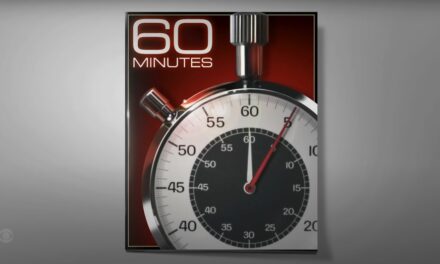In a dramatic turn of events for cable news, Nicolle Wallace, the popular anchor of MSNBC’s “Deadline: White House,” has been grappling with a noticeable drop in viewership since Donald Trump was declared the winner of the 2024 presidential election. This shift has raised eyebrows across the broadcasting industry, as Wallace’s program had enjoyed high ratings during the previous presidential election cycle, particularly when Trump was a central figure in the political landscape.
The ratings for Wallace’s show had peaked during the turbulent days leading up to and immediately following the 2020 election, a period rife with tension, political controversy, and significant public interest in the outcomes of various election-related events. Now, the political climate has shifted dramatically, and with it, the interest level in programs dedicated to the divisive figures of American politics appears to have taken a nosedive.
One of the critical factors contributing to this downturn is the changing dynamics of the political conversation. Following Trump’s 2024 victory, many news consumers seem to have transitioned from an acute focus on election coverage to seeking insights and analysis regarding policy implications and the impact of a Trump administration once more. This shift in viewer interest has created a challenge for Wallace and others in her position, who have built their reputations and programming around a fast-paced, reactionary news cycle that previously thrived on crisis and controversy.
Historically, Wallace has been known for her sharp analysis and her willingness to engage with a range of political viewpoints. She was a vocal critic of Trump during his presidency and played a significant role in MSNBC’s commentary during the tumultuous election seasons. Her ability to dissect and interpret the intricacies of political maneuvers garnered her a dedicated following. However, as the dust settles post-election, this approach has started to struggle against a backdrop of diminished urgency and interest in the same narratives that had initially brought her success.
Another element affecting viewership numbers is the competition increase among cable news networks. As audiences become more selective, the demand for insightful commentary and captivating narratives has intensified. Other networks have also adjusted their programming to provide a fresher perspective or coverage outside the sphere of Trump’s leadership. Networks such as CNN and even rival Fox News have made strategic moves to capture segments of the audience that Wallace once dominated. These changes in strategy have heightened competition, making it all the more difficult for Wallace to maintain her previous ratings levels.
Additionally, the demographic and behavioral shifts among news viewers cannot be ignored. A growing segment of the population is engaging with political content through streaming platforms and social media, transcending traditional cable news. Younger viewers, in particular, tend to seek their news in different formats, often preferring bite-sized content delivered through platforms like TikTok and Instagram rather than traditional news broadcasts. This changing consumption pattern presents significant challenges for traditional cable news personalities, including Wallace, who may struggle to maintain relevance in an increasingly fragmented media landscape.
Moreover, it must also be considered how the narratives grounded in fear, anxiety, and political uncertainty that were prevalent during the Trump presidency have shifted. In 2020, Wallace and many others were able to leverage public concern about Trump’s leadership to drive engagement. As the current political climate changes, fewer viewers may feel the need to engage with programs that fuel similar fires, leading them to tune out programs that seem to echo past anxieties rather than offer new insights into the current political reality.
The significant drops in ratings experienced by MSNBC have prompted conversations within the network about strategic changes. There are discussions about potential revamping of content strategies, exploring themes that resonate with a modern audience while remaining true to the network’s identity centered around progressive commentary. As viewers seek out engaging narrative styles, Wallace’s producers may examine ways to innovate content delivery on “Deadline: White House,” potentially incorporating more interactive elements or varying the tone from a purely analytical framework to a blend that includes more human interest stories, thus establishing a renewed connection with the audience.
Viewers have also begun to seek diversification within the roster of cable news personalities who are discussing Trump’s presidency. New voices and emerging commentators are making their mark by tackling political topics through different lenses, often reflecting a broader array of experiences and narratives. As a result, Wallace faces both a need for revitalization in her approach and an opportunity to engage wholeheartedly with these changing dynamics to reclaim her audience.
As various news organizations and individual broadcasters navigate such challenging waters, the implications of declining ratings extend beyond personal and professional impact on individuals. It speaks to the broader shifts in American media consumption and public engagement in political discourse. Changes in viewer habits signify a pivotal moment in cable news, necessitating that broadcasters adapt and evolve their frameworks to retain viewership.
The pixelated screens at news headquarters reveal a truth that the industry must confront: audiences are more informed than ever and are demanding content that is not just sensational or controversial but relevant, nuanced, and enriching. Nicolle Wallace, as a prominent figure at MSNBC, appears to be at a crossroads within the more comprehensive narrative of how political journalism is adapting to this new reality.
In the upcoming months, it will be critical for Wallace and her team to assess their viewership, take into account viewer feedback, and understand broader social currents to better connect with an ever-evolving audience. It will require innovative thinking, collaboration with a younger generation of reporters and producers, and ultimately a willingness to reinvigorate her approach toward engaging in the current political landscape.
In closing, the decline in ratings for Nicolle Wallace’s show reflects not only her personal challenges but also a significant shift in how news is consumed and delivered within the polarized American political landscape. The path ahead requires adaptability, creativity, and a commitment to finding the balance between providing sharp political insights and fostering a connection with an audience hungry for understanding and depth in a rapidly changing world.
































